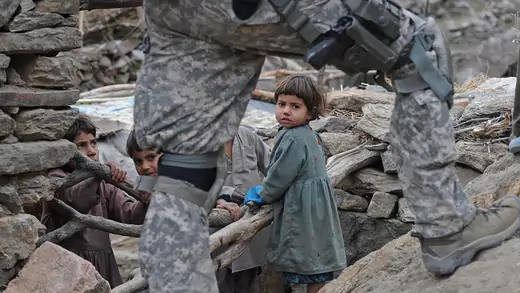By Max Boot
President Joe Biden will announce that all U.S. troops in Afghanistan will be withdrawn by September 11, 2021, after more than twenty years of U.S. involvement in the country’s war. But the withdrawal comes with major risks: the Taliban could expand its control over Afghanistan, and the ongoing peace process between the group and the Afghan government could collapse.
The most important aspect is that it is not conditions-based. Previous U.S. presidents have generally said they would make redeployment decisions in Afghanistan and Iraq based on the threat posed by local enemies and the capabilities of local allies. Even the Donald Trump administration, which set a May 1 deadline for withdrawal in last year’s negotiations with the Taliban, insisted that the Taliban denounce al-Qaeda (which it has never done) and refrain from attacks on U.S. troops (which it has generally done).
The Taliban is currently on the offensive, and peace talks between the group and the Afghan government are stalled. But Biden announced a withdrawal anyway. By ditching any conditions for withdrawal, Biden has made it possible to pull out the remaining 3,500 U.S. troops—but at considerable risk. The U.S. intelligence community has assessed that the Taliban could take over much of Afghanistan within two to three years of a U.S. withdrawal.
Could U.S. or other foreign forces remain in Afghanistan beyond September 11?
This seems very unlikely. Biden has said he is pulling all the U.S. forces out, with no exception for Special Operations Forces, and the roughly seven thousand other international troops will likely follow them out the door because they rely on U.S. enablers. The question now is whether the United States will even be able to keep its embassy open.
Will the Taliban expand its control?
Yes. It is now virtually certain to expand its control in southern and eastern Afghanistan, where insurgents have long held considerable sway in the countryside. What happens in the rest of the country, particularly in the cities, remains unclear.
Taliban Control in Afghanistan
Control by district, as of March 2021
With the help of American airpower and other enablers, government forces were able to secure all of Afghanistan’s cities. Maintaining that control could become impossible. The first city to fall to the Taliban could be Kandahar, which is already encircled by insurgents. That could start a chain reaction that eventually leads to the Taliban marching on Kabul. The danger is that the Afghan security forces will splinter and that Afghanistan will be plunged into civil war, with northern warlords resisting the Taliban’s advance just as they did in the late 1990s.
What is the likelihood that Afghanistan again becomes a terrorist haven?
The congressionally chartered Afghanistan Study Group warned earlier this year that “a precipitous withdrawal could lead to a reconstitution of the terrorist threat to the U.S. homeland within eighteen months to three years.”

It will be hard for the United States to conduct over-the-horizon counterterrorism operations because it will lose visibility on the threat: a U.S. military withdrawal also means the withdrawal of many intelligence personnel. And even if threats are detected, it will be hard to eradicate them—long-range air strikes are likely to be inaccurate and commando operations risky.
But the most immediate threat posed by the U.S. withdrawal will not be to the United States—it will be to the people of Afghanistan, especially its women, most of whom have no desire to be ruled by the Taliban.
What’s next for the intra-Afghan peace process?
The World This Week
A weekly digest of the latest from CFR on the biggest foreign policy stories of the week, featuring briefs, opinions, and explainers. Every Friday.
The peace process has already stalled and is unlikely to progress now. The Taliban has zero incentive to compromise now that U.S. troops are leaving.
In early March, the Biden administration tried to turbocharge the negotiations by unveiling a plan for an interim government and inviting the parties to finalize an accord. But the Taliban showed little interest; it said it will not join a conference in Turkey that was set to begin this week.
Taliban leaders believe they have already won the war. As the Taliban’s deputy leader, Sirajuddin Haqqani, recently said: “No mujahid ever thought that one day we would face such an improved state, or that we will crush the arrogance of the rebellious emperors, and force them to admit their defeat at our hands. Fortunately, today, we and you are experiencing better circumstances.”
No comments:
Post a Comment